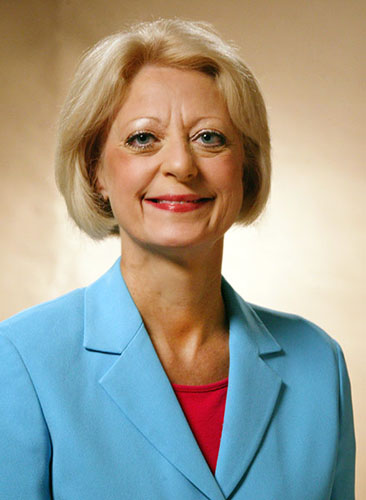The University of Arkansas, among other prominent institutions, is taking a leadership role in addressing efficient and effective state authorization and compliance systems for interstate educational programs.
Kim Bradford, director of compliance and quality assurance for the U of A Global Campus, served as a panel facilitator earlier this week at a national workshop that brought together state regulators and people who must navigate the complex rules governing education programs that cross state lines.
Institutions that provide educational programs – including online programs – to people living outside their home states must comply with state authorization regulations that vary by state. Bradford heads the University of Arkansas’ efforts to comply with those regulations.
The Western Interstate Commission for Higher Education’s Cooperative for Educational Technologies held a State Authorization Compliance Workshop on April 21 in Sacramento, Calif., and brought higher education administrators and state regulators across the nation together to discuss state authorization requirements and state preferences for working with regulators on compliance. WCET is a national education cooperative that accelerates the adoption of effective practices and policies, advancing excellence in technology-enhanced teaching and learning in higher education.
“The workshop provided a unique opportunity to meet some of the state regulators we’ve been working with and to compare notes with peer institutions involved in similar challenges and opportunities,” Bradford said.
Other institutions participating in the workshop include the University of Texas at Arlington; Clemson University; University of Michigan; and the University of Minnesota. The U.S. Department of Education/Office of Postsecondary Education, Dow-Lohnes LLC, and the Distance Education and Training Council, a non-profit educational association in Washington, D.C., also participated in the discussions.
The event was an activity of WCET’s State Authorization Network, which is aimed at assisting member institutions in navigating state regulations more efficiently. The University of Arkansas is currently the only institutional network member within Arkansas.
The workshop included discussion panels of best practices related to institutional processes, structures and communications being used to support and maintain compliance. Bradford facilitated the panel discussion “Disclosures and Disclaimers,” which explored how institutions communicate program availability and authorization status to prospective students and individuals from other states.
A spotlight fell on state authorization regulations in 2010, when the U.S. Department of Education released a regulation – which is no longer applicable – that required institutions to document that they have proper approval to serve students in other states. Although the federal regulation is no longer pertinent, states have regulations that predate the 2010 federal rule and remain relevant. States with regulations still expect institutions to obtain necessary approvals before advertising or operating in each state, a process commonly referred to as “state authorization.”
Authorization rules vary by state, and they apply to educational offerings regardless of delivery mode (face to face, distance, etc.). Much attention, however, has been focused on online and distance education degree programs, certificate programs and courses.
Based on fall 2012 data, the university has approval of the higher education agencies in 47 states to deliver education in those states, with expected approval for the remaining states, as well as some U.S. territories, forthcoming.
While maintaining compliance with each state’s higher education approving agency, additional compliance efforts will include working with the departments that offer certain online professional programs to address the requirements of state licensure boards.
Maintaining compliance will be an ongoing effort that involves collecting and applying institutional data to the regulatory processes of all 50 states and several territories.
The Global Campus supports the academic colleges and schools across campus that develop and deliver online degree programs and courses. It provides access to national distance education organizations, instructional design services, and assistance with strategic academic program development.
Contacts
Kay Murphy, director of communications
Global Campus
479-575-6489,
